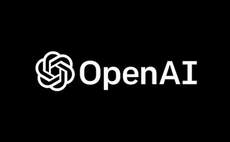
Real world AI success stories
The benefits of AI in enterprise environments are widely recognised. From intelligent reporting to proactive cybersecurity, and from customer insights to automating human-intensive processes, the drivers of success enabled by AI are well-known. However, how can organisations cut through the hyperbole to uncover the cases for genuine business success?
Computing's latest report into this area, conducted in collaboration with Intel®, uncovers how organisations have gone beyond the proof-of-concept and facilitated success using AI.
For example, AI in healthcare is positively impacting patient care. Routine X-Rays, supplemented with AI, speed up diagnoses, improve scanner productivity, and improve the patient experience. The speed and accuracy of imaging are significantly improved through intelligent tooling that has been trained on a plethora of historical data.
In this way, AI does not replace healthcare employees but instead enhances the capabilities of users and automates mundane manual objectives. Through assisting with repetitive tasks usually performed by specialist workers that create inattention, AI allows organisations to redirect their resources while preventing user error and fatigue. For example, rotation, a laborious but essential component of reviewing medical scans, is automated using AI. Reports estimate that removing the human element from rotation saves employees around three working days per year.
Intelligent insights
AI, capable of intelligently tracking user behaviour and decisions, is also benefitting customer experience. Data obtained on user interactions can be used to create straightforward, actionable insights for businesses. Based on this, AI can make automatic recommendations to customers that are specific to their previous and real-time preferences. Alongside contextual data such as time of year or even outside weather, organisations like restaurants can provide tailored services that, for example, recommend soup on a cold day to a soup-loving customer and recommend meal packages based on what is already in their basket.
Performance enhancements as a result of AI also improve user interactions, enabling quick, reliable and user-friendly experiences. For customers, a positive interaction is hugely important in attracting their business and facilitating future business.
While progress in AI adoption is uneven, the advancements are clear. Roughly one in two organisations have begun their AI transformation journey, either trialling, implementing, or having fully implemented the technology. Those organisations underline the significant role AI has played in enabling new lines of business and revenue streams, with around 80 per cent of respondents agreeing it has positively impacted their competitive edge.
To learn more about Computing's research into real world AI use cases with real results, read the full report.
Sponsor insight - Intel
Organisations must harness AI to extract value from data, but challenges abound. Data pre-processing, from discovery to breaking down silos, to quality control, and managing it from edge to cloud, come first. Taking the right approach to modelling, from analytics to machine or deep learning, with the right technology and expertise comes next.
Intel provides a holistic and open path forward, addressing the full data, modelling and deployment pipeline, with the freedom to compute on whichever architecture is best, including the only x86 CPU with built-in AI acceleration.
This article is sponsored.





















